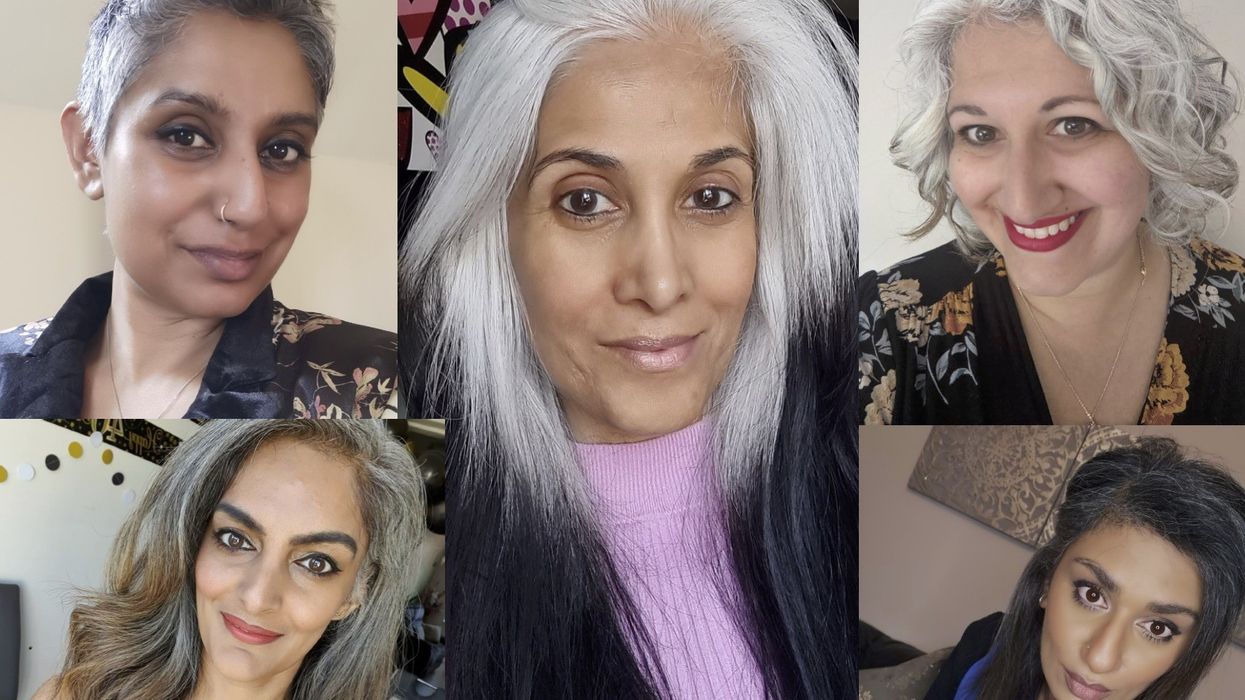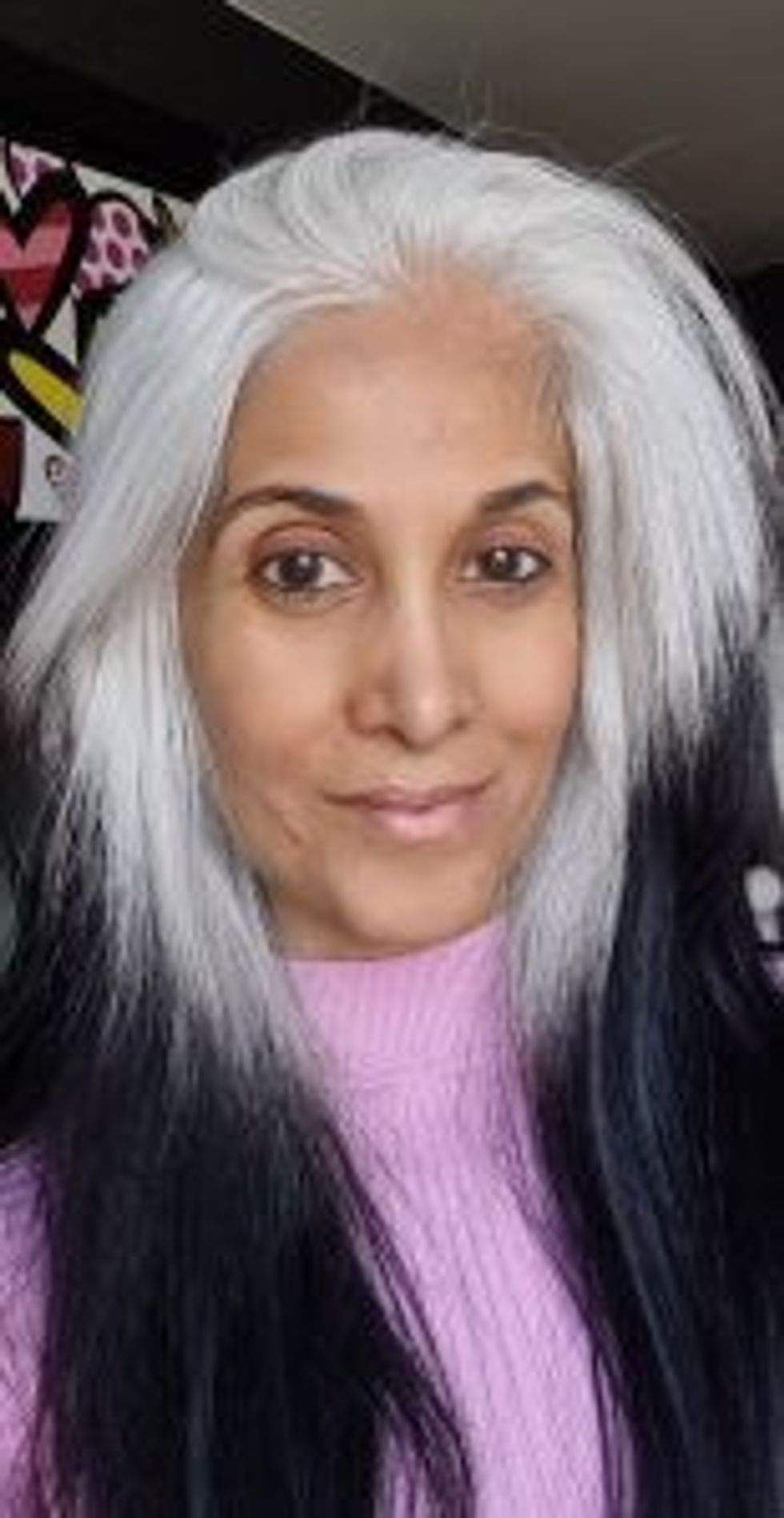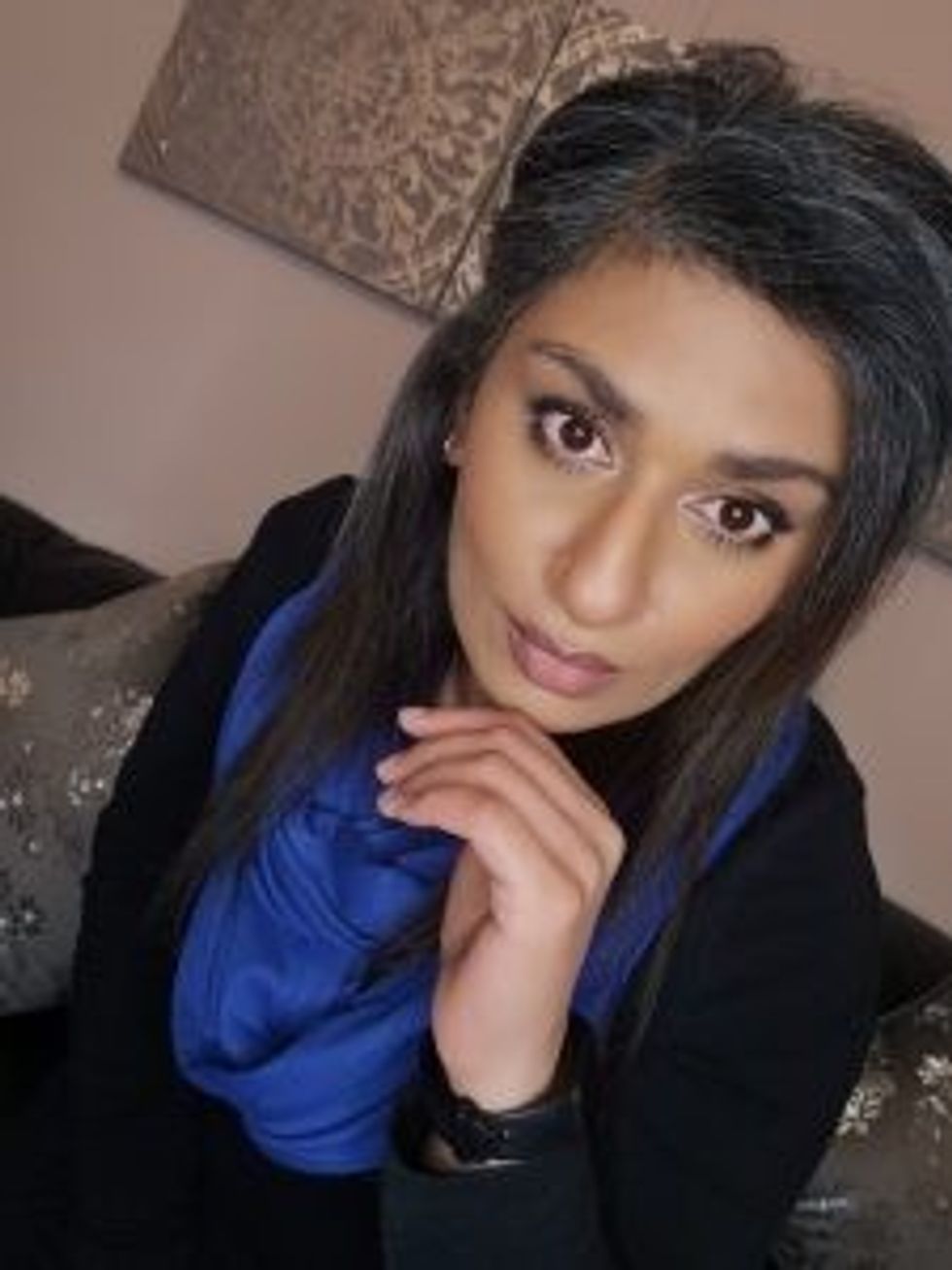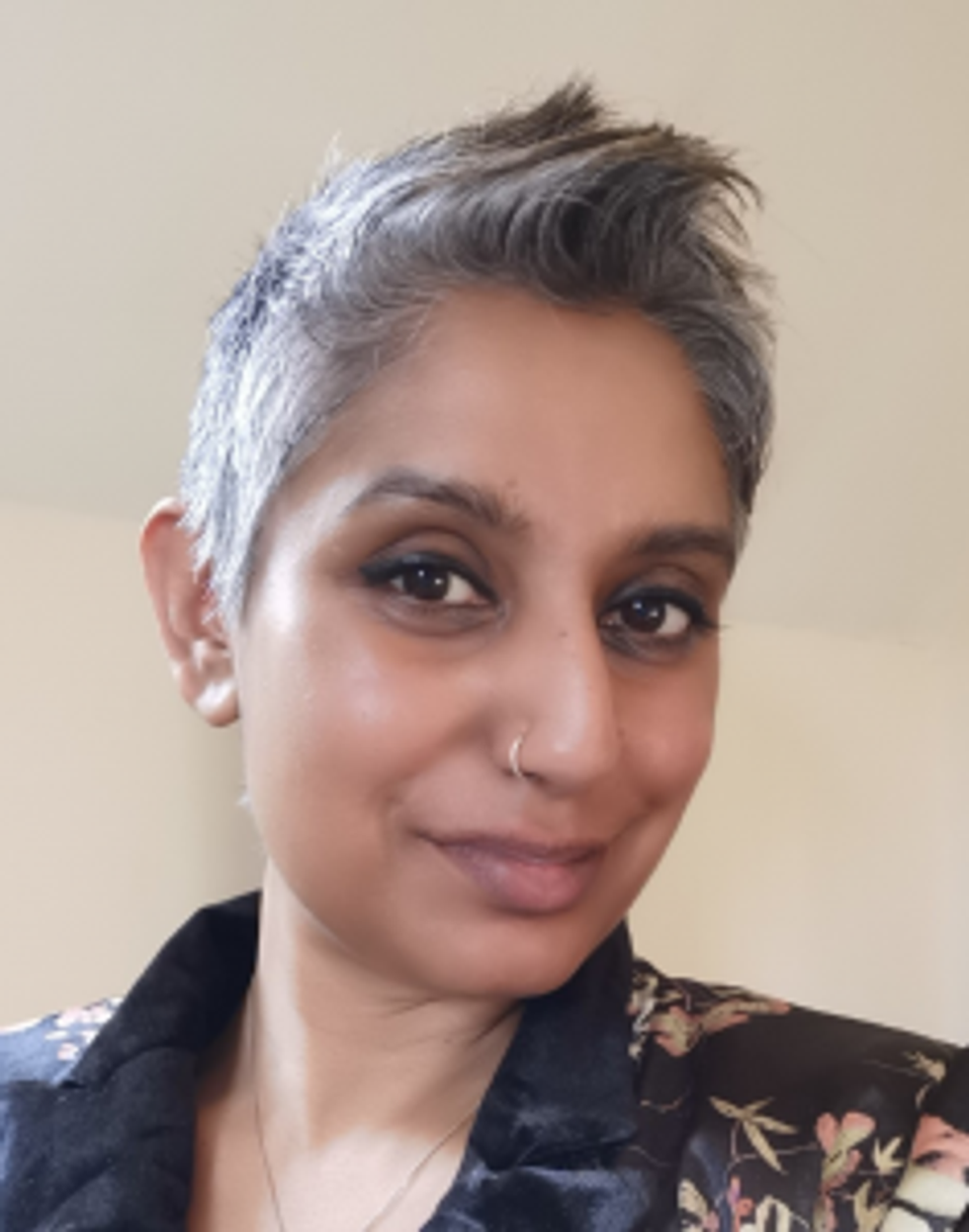WHY A NEW WAVE OF WOMEN ARE GOING GLORIOUSLY GREY
A GREY revolution has taken the world by storm and that mighty movement has only got stronger throughout lockdown with more women than ever ditching the dye.
The trailblazers have shown the brilliant beauty of going grey and in doing so have empowered others to follow their inspiring path. Eastern Eye caught up with five of these fabulous silver sisters to find out about their gorgeously grey journeys.
Fauzia (53)
It all began with a mallen streak at the age of seven. I was distraught and ashamed. I felt I didn’t fit in because I was different. Each white hair was snipped away! Fast forward 15 years and I had embraced my natural hair, but had my confidence shattered by my father’s harsh criticism of it. I was made to feel I had to ‘fix’ my grey hair, and so my chemical relationship began. It ruled my life from there on. Over the years, I yearned to ditch the dye, but I lacked the courage because of cultural pressures and societal norms, which depicted women with grey hair as old, ugly and unworthy. Lockdown was an opportunity to embrace my grey; it was now or never. I took a leap of faith and feel free as a bird with my beautiful, natural hair colour. I feel proud to be a silver sister – to inspire and support those who may be in the position I once was. This is not the end and just the beginning. I am unique and I love it!
Instagram: @WhiteHairDontCare2020
Mazz Akhtar (38)
At 25, I was 40 per cent grey, so dyeing my hair was a routine way of life. I loved being a bottle red-head and for a long time all was well. Fast forward 10 years and 80 per cent grey was far more difficult to manage. I was now dyeing my hair once a month, sometimes even twice! It was falling out, brittle and breaking at the slightest touch. Yet still, I succumbed to the cultural perception of “you’re going to look old and awful if you don’t dye it.” In January 2020, I didn’t want to live my life like that anymore and ditched the dye. Fourteen months later, I know I made the best decision for my hair. It has started to recover from the torture of 20 years of hair dye. I hope by going grey I can encourage others to buck the norm and most importantly, I can set an example for my daughter, that grey hair is beautiful, and we can choose to age any way we want.
Instagram: @mazz_silver_strands_of_wisdom
Devjani Bodepudi (40)
I eventually decided to ‘ditch the dye’ because I knew I wasn’t fooling anyone, least of all myself. It became a depressing inevitability, finding the white appear only days after an expensive dye job. I was also touching up the roots at home every three weeks, but it wasn’t enough. I’d always admired the few women I knew who had stopped colouring, so I was sure it could be okay, if not stunning. My biggest fear was that it would be ageing and that’s why I turned to Facebook and Instagram. It is where I found the sweeping silver sisters movement, but I also learnt of the growing number of brown women who look like me and understand the stigma we face in our own communities. Now that it’s done, I feel relieved. Nothing compares to knowing that you’re becoming a little more of who you are supposed to be.
Instagram @browngirlgreygirl
Sukhi Sian (41)
Lockdown gave me my opportunity to ditch the dye. I had been dyeing my hair for 20 years. Even though it felt like a chore, covering greys was the ‘norm’. Three months before lockdown, I turned 40 and wanted to dye my hair silver to blend with the greys. Instead, my hairdresser and I compromised on chocolate brown to prevent damage from bleaching. When lockdown happened shortly after, I did not bother with box dyes; I was curious to see my grey growth. Fifteen months on and what a transformational journey this has been, unravelling another layer of self-authenticity. I have even begun to embrace my hair’s natural waves. It might sound crazy, but I now see the roots of my hair like the roots of a tree – they go deep within to the core of me, like an anchor symbolising an inner strength that can withstand anything. A journey of self-love.
Instagram: @sukhi_silver_journey
Naomi Jones (40)
“I am pleased you dyed it, the grey was really ageing”. I was 21 and my glamorous colleague’s wife’s words hit home. Confirming my fears that white hair is a big no-no, I started a process of dyeing my hair, which was to last two decades, spending three hours in the hairdressers every four weeks. Then lockdown hit and hairdressers shut. Three months without dye and my hair was healthier. The white actually made my skin look brighter. Embracing your grey does not mean letting yourself go. I still invest in good haircuts and have found a love of colour in my clothing and makeup. Not everyone likes it, but I get more compliments than negative feedback, mainly from women in their twenties who come up to me to say they love it. The next generation is better at embracing beauty in its different forms and these are the words I listen to now.
Instagram: @silverat40









